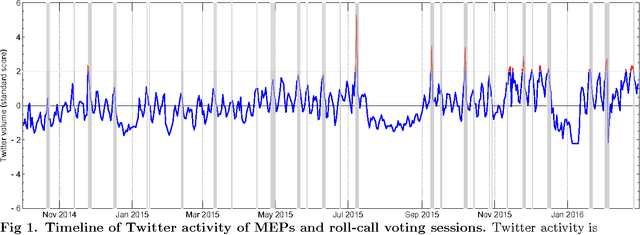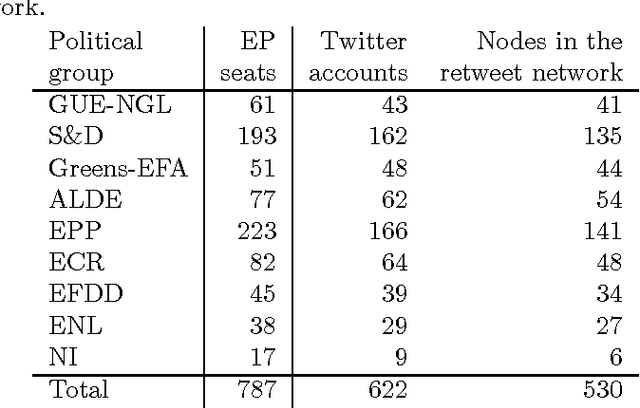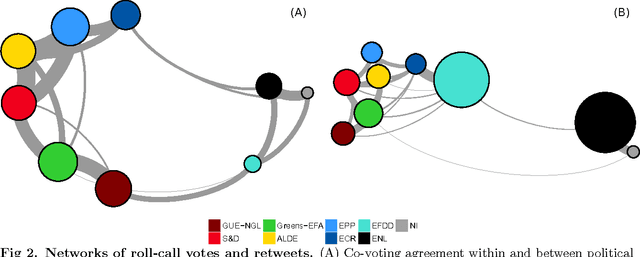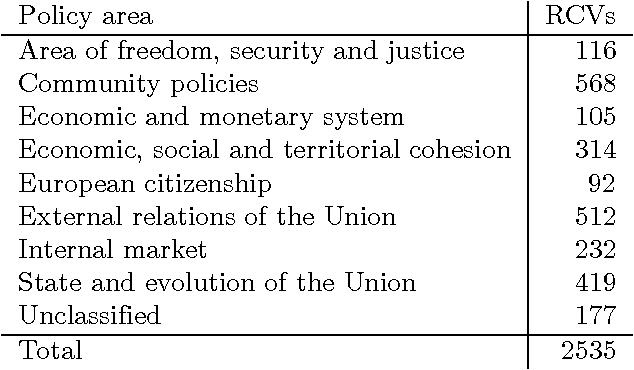Cohesion and Coalition Formation in the European Parliament: Roll-Call Votes and Twitter Activities
Paper and Code
Oct 14, 2016



We study the cohesion within and the coalitions between political groups in the Eighth European Parliament (2014--2019) by analyzing two entirely different aspects of the behavior of the Members of the European Parliament (MEPs) in the policy-making processes. On one hand, we analyze their co-voting patterns and, on the other, their retweeting behavior. We make use of two diverse datasets in the analysis. The first one is the roll-call vote dataset, where cohesion is regarded as the tendency to co-vote within a group, and a coalition is formed when the members of several groups exhibit a high degree of co-voting agreement on a subject. The second dataset comes from Twitter; it captures the retweeting (i.e., endorsing) behavior of the MEPs and implies cohesion (retweets within the same group) and coalitions (retweets between groups) from a completely different perspective. We employ two different methodologies to analyze the cohesion and coalitions. The first one is based on Krippendorff's Alpha reliability, used to measure the agreement between raters in data-analysis scenarios, and the second one is based on Exponential Random Graph Models, often used in social-network analysis. We give general insights into the cohesion of political groups in the European Parliament, explore whether coalitions are formed in the same way for different policy areas, and examine to what degree the retweeting behavior of MEPs corresponds to their co-voting patterns. A novel and interesting aspect of our work is the relationship between the co-voting and retweeting patterns.
 Add to Chrome
Add to Chrome Add to Firefox
Add to Firefox Add to Edge
Add to Edge